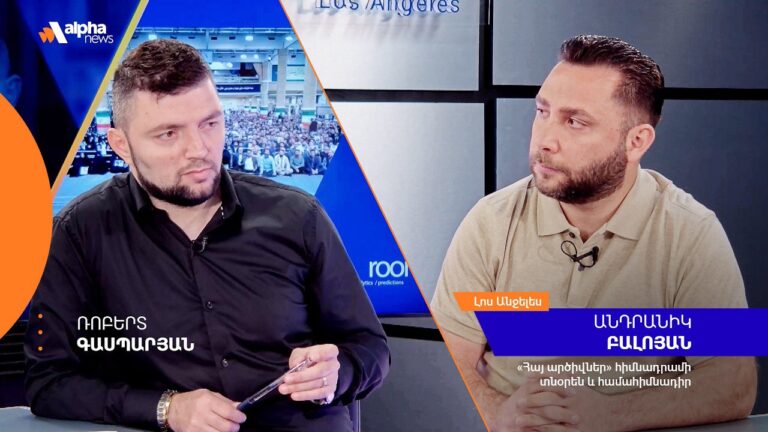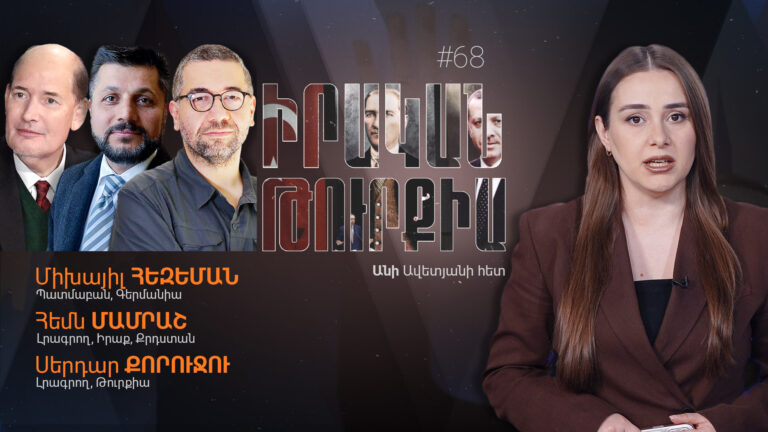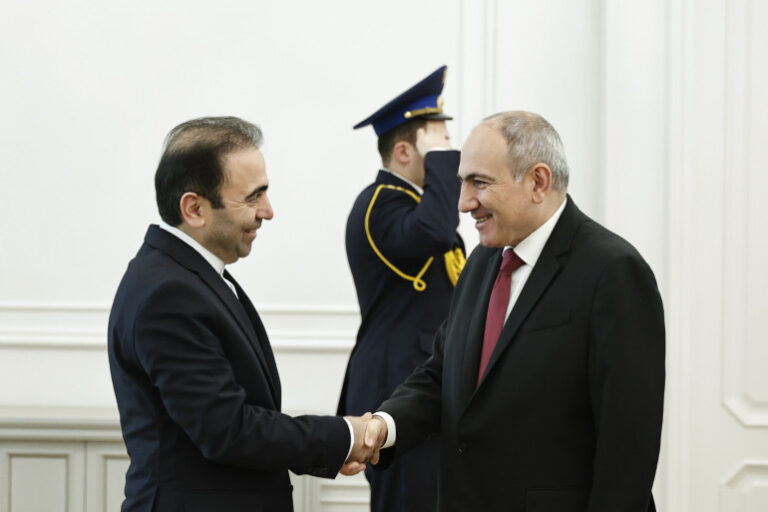Recognizing Artsakh as part of Azerbaijan cannot be derived either from the Declaration of Independence or from the Constitution, a preface of which is the Declaration of Independence itself
August 23 2023, 11:21
The comprehensive content of the provisions of the Declaration of Independence was not understood by the representatives of the current government. The declaration was not the evidence of independence as a completed process. It was just the beginning of the process. In an interview with Alpha News, Doctor of Law, professor, member of the Supreme Spiritual Council Gevorg Danielyan has noted that the declaration is not only symbolic but also a document of serious political and legal significance.
According to Gevorg Danielyan, even in the USSR, the legislation of that time allowed such documents to be accepted. “With the declaration, the state submitted an application that it is starting the process of independence,” Danielyan explains and notes that the Declaration of Independence was not the first document on the independence process. He recalls that on January 11, 1990, a law was adopted, by which it was envisaged that all the laws and by-laws of the USSR on the territory of Armenia can come into effect only after the ratification of the Supreme Soviet of the USSR.
Danielyan also refers to the legal decisions made and forgotten in those years.
“On May 3, 1990, a decision was made and a commission was formed. According to that decision, the elections of the president should be held after two months. According to him, some political forces of those years went against the presidential model of government, stating that they were only in favor of the parliamentary one. Soon after, the declaration was adopted, which eliminated the institution of the president, but less than a year later, everything turned upside down.
“On September 1, a law on the President was adopted, and on August 2, 1991, the law on the election of the President was passed. The declaration already forbade it, it was fixed there who can act on behalf of the people,” Gevorg Danielyan says.
Presenting the stages of the legal formation of the Third Republic, Danielyan notes that a few months after the adoption of the Declaration of Independence, on December 10, 1990, a law was passed declaring that all laws and by-laws of the USSR are simply not in effect. Meanwhile, before that there was a law according to which they are valid after the ratification of the Supreme Soviet.
“It turns out that we considered the laws of the USSR that contradicted the Declaration of Independence to be invalid, but at the same time, we adopted laws that contradicted the declaration, but were valid,” Danielyan explains.
In his words, if the idea of introducing the president’s institution was not accepted, it would pave the way for making the Declaration of Independence irrevocable.
The professor also recalls the law on the reunification of Nagorno-Karabakh and Soviet Armenia.
“On December 1, the Supreme Soviet of the Armenian SSR and the National Council of Nagorno-Karabakh, not yet being recognized as a constitutional body, made a joint decision on reunification. It is sad when you hear from the first leaders of the government saying “if they were already reunited, then why did they become independent,” Gevorg Danielyan says.
He explains that in 1989 Artsakh got de facto independence, and it became de jure independent in 1991.
“Even before the infamous Almaty Declaration of December 25, a referendum was held on December 10 and Artsakh became independent. Moreover, the law of the USSR allowing the autonomous marzes to become independent was already adopted,” Danielyan notes.
He mentions several facts of Armenia’s recognition of Artsakh Republic as an independent state. “Under the rule of of President Robert Kocharyan, an agreement was signed, and the deployment of the Armenian armed forces in Artsakh and the surrounding area to ensure security was based on that agreement,” he says.
According to Gevorg Danielyan, with numerous legislative acts and international agreements, Armenia has taken into account the independence of Artsakh.
“Why didn’t we do it with a separate decision? Because negotiation processes were taking place,” Gevorg Danielyan reminds.
He emphasizes that the recognition of Artsakh as part of Azerbaijan cannot be derived either from the Declaration of Independence or from the Constitution, a preface of which is based on the Declaration of Independence itself. Ignoring any provision written in the Declaration means ignoring the Constitution. The constitution has undergone significant changes twice, but the preface has remained the same.
“If legal acts have been adopted, then those acts should be changed, if the people really want it, and if you haven’t revised them, be guided by those acts. You have to do it and you have no right to bypass the Constitution. You demand compliance with laws from everyone, but you closed the Constitution and put it aside a long time ago,” Gevorg Danielyan says.







